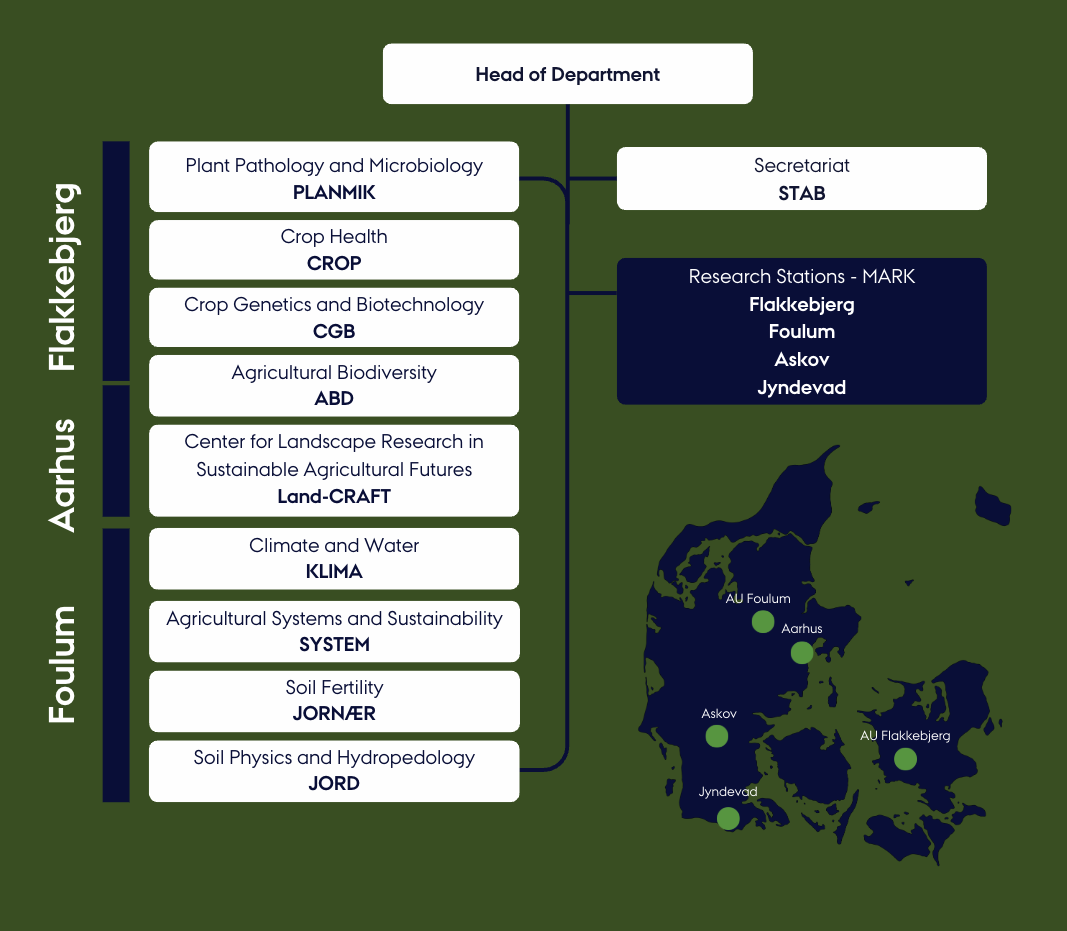Organisation

AGRO has approx 350 employees. These employees are organised into nine research sections, 3 field units and a secretariat.
-
Crop Genetics and Biotechnology (CGB)
The purpose of the section is research on genetic and molecular biological studies of crop plants.
-
Crop Health (CROP)
The section conducts research into crop health, which comprises pests, nutrients and crop quality, in order to contribute to environmentally and economically sustainable crop production.
-
Plant Pathology and Microbiology (PLANMIK)
The section conducts research into prevention and control of plant diseases, pests and honeybee diseases.
-
Soil Physics and Hydropedology (JORD)
The section conducts research into basic soil physical, chemical and hydrological process understanding and into obtaining quantitative insight into the spatial distribution of soil properties on a local, regional and national scale.
-
Soil Fertility (JORNÆR)
The section conducts research into the interaction between plant growth, soil fertility and the biogeochemically mediated turnover of nutrients and carbon in agricultural soils.
-
Climate and Water (KLIMA)
The section conducts research into the interaction between climate and agricultural production, including how agricultural climatic load can be reduced, how production can be adapted to changing climatic conditions, how water resources can best be utilised and protected and how biomass production can be increased, taking this into consideration.
-
Agricultural Systems and Sustainability (SYSTEM)
The section conducts research into how the sustainability of different farming and food systems can be improved. The focus is on the balance between production competitiveness, the impact on nature and environment and the contribution to rural development and how this is influenced by agronomic-biological factors, the organisation of food chains and the regulation of agricultural production.
-
Center for Landscape Research in Sustainable Agricultural Futures (Land-CRAFT)
Land-CRAFT is the Center for Landscape Research in Sustainable Agricultural Futures.
-
Agricultural Biodiversity (ABD)
The section works across disciplines to develop more resilient agro-ecosystems through research, innovation and education.
-
Field Trials and Semi-field Areas (MARK)
The section conducts practical trials at the department’s unique research facilities, including research stations and semi-field areas with different soil types and climates.
-
Secretariat (STAB)
The secretariat provides administrative support of both the department management team and the department’s other employees for their activities within research, teaching and public sector consultancy.